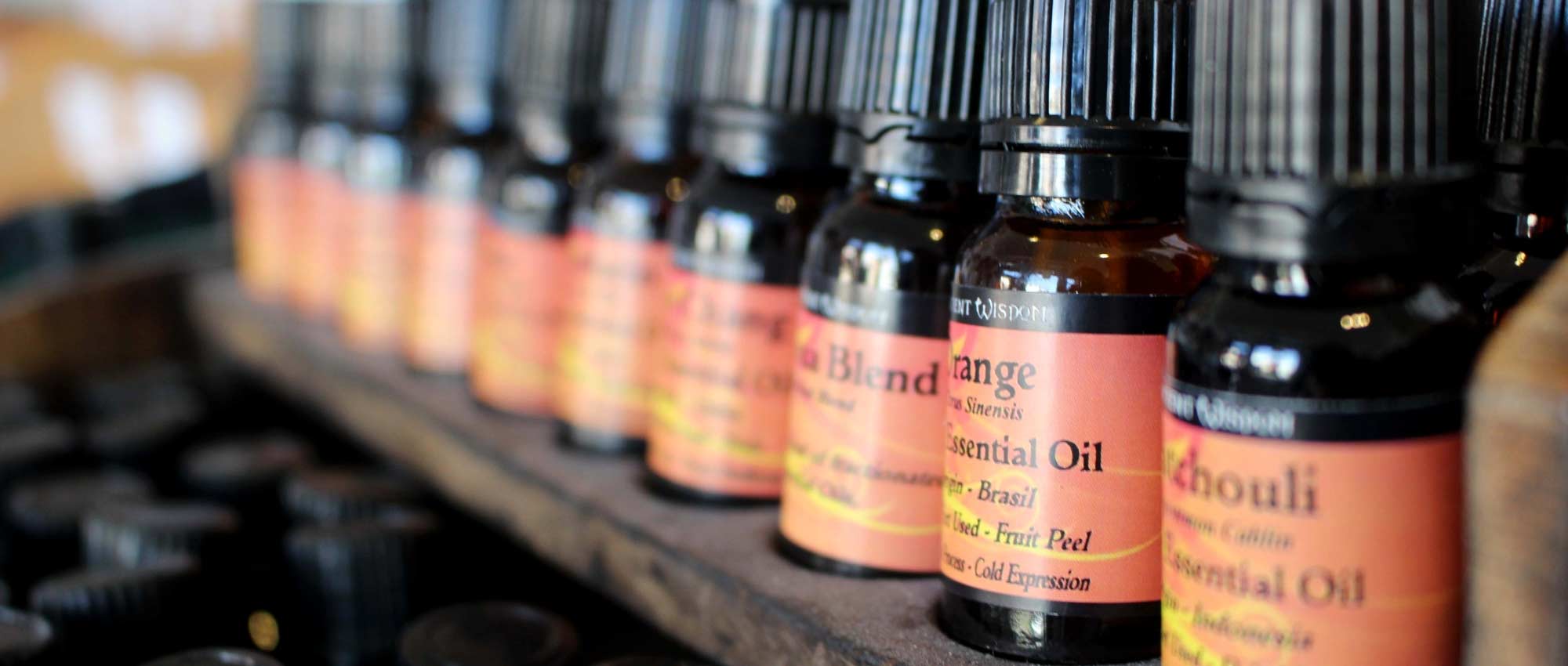
Care for garden plants with essential oils
How to use them in the garden and vegetable patch?
Contents
Essential oils are well known for their medicinal properties, helping to improve human health and well-being, but they also have uses in the garden and vegetable patch for treating plants! Their use is ideal to avoid the use of synthetic pesticidal products. Alongside other natural gardening techniques, such as using manures, decoctions, infusions, and companion plants and preventative techniques, essential oils will help you tackle problems you may encounter in the garden!
Some are effective at repelling pest insects, others are useful for combating diseases caused by fungi and bacteria. Here are all our tips for treating your plants with essential oils, fighting diseases and parasitic pests naturally, without using chemical products. Discover how and when to use them!
Basic principles and precautions to take
Essential oils are concentrated, volatile extracts obtained by distillation. They contain highly effective active compounds, often with antifungal and antibacterial properties, and sometimes insecticidal.
Essential oils are very rich in active compounds, so use sparingly and with caution, not excessively. Initially, favour gentler techniques: decoctions, infusions, manures, black soap… Essential oils are used curatively rather than preventively and should serve as an adjunct treatment, to be used only if other gentle techniques fail. Also avoid overdosing to increase effectiveness: as essential oils are very concentrated extracts, at too high doses they can become toxic for plants.
Check that weather conditions are suitable to treat in dry, wind-free conditions. Before beginning to use essential oils, protect your skin and eyes, as they can be harsh and irritating (notably to mucous membranes as well as to other parts of the body). Likewise, after use, wash your hands thoroughly.
Finally, to store and preserve essential oils between uses, it is important to keep them protected from light and heat.
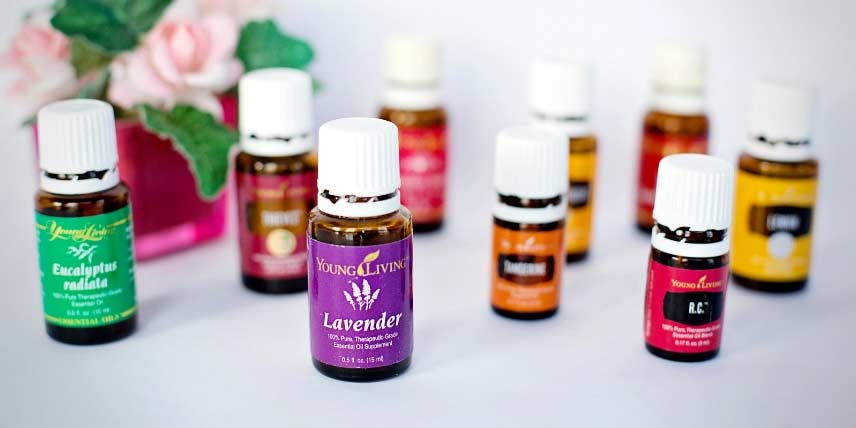
Essential oils
How to use essential oils in the garden?
Essential oils do not mix directly with water: a surfactant is required — mix them with a little black soap or washing-up liquid, for example.
To prepare an essential oil-based garden treatment, we therefore recommend:
- start by diluting 20 to 25 drops of essential oil in a spoonful of black soap, then in a glass of water,
- prepare a clay slurry, to help disperse the product and ensure better adhesion on plants. To do this, mix some very fine clay with a litre of water,
- you can then add the glass of water containing the black soap and essential oil to it,
- mix well and spray onto your plants.
Which essential oils for which treatment?
Against parasitic insects and pests:
To control pests that weaken plants by drawing sap or eating leaves, garlic and clove essential oils are of interest because they have a wide spectrum of action. Peppermint is a very good insecticidal agent against aphids in particular, and against caterpillars. It is also effective against many other insects.
You can also create a general, broad-spectrum insecticidal spray by mixing several essential oils, for example peppermint, clove and rosemary.
Here is a list of main pests that can be kept at bay with essential oils:
- Aphids: peppermint, common sage, garlic, cedar, spike lavender…
- Whiteflies: rose-scented geranium, lavender
- Scale insects: cinnamon, rose-scented geranium, bitter orange petitgrain
- Flea beetles: peppermint
- Defoliating caterpillars: peppermint, garlic
- Red spider mites: rosemary
- Codling moth: juniper
- Carrot fly: rosemary
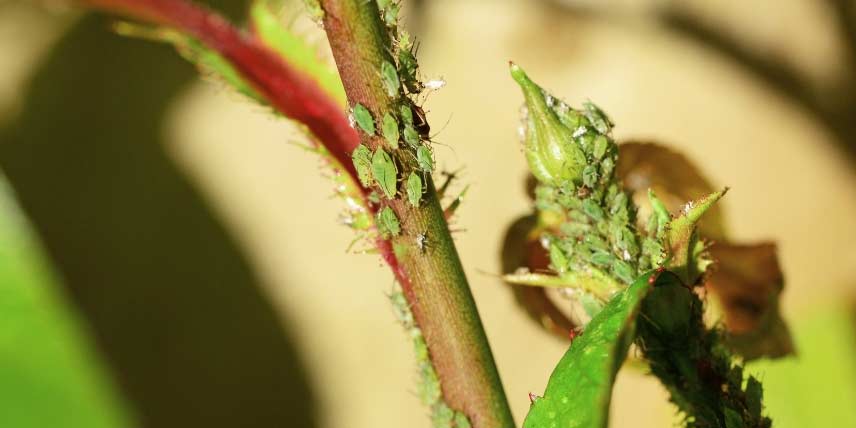
Against aphids, you can use peppermint or common sage essential oil
Against diseases:
Against fungal diseases, caused by a fungus, tea tree essential oil proves quite useful: it has a wide spectrum and is effective notably against powdery mildew, downy mildew, anthracnose… Garlic essential oil also has good antifungal properties.
Finally, sandalwood essential oil has the advantage of strengthening plants, thereby making them more resistant to disease.
Here is a list of main plant diseases that can be treated with essential oils:
- Powdery mildew: garlic, wild thyme, tea tree
- Downy mildew: oregano, tea tree, clove, rosemary
- Rust: tansy
- Sooty mould: oregano, cinnamon
- Canker: wild thyme
- Brown rot: oregano, savory
- Anthracnose: tea tree
- Peach leaf curl: savory
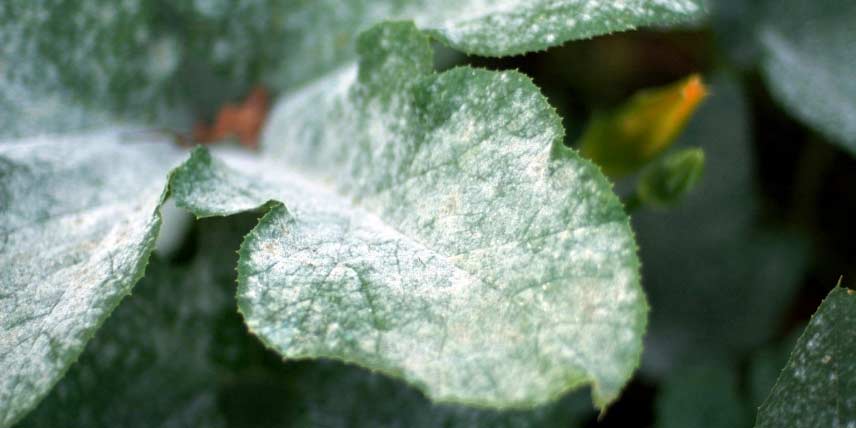
For powdery mildew, spray tea tree or wild thyme essential oil
Against snails and slugs:
To repel gastropods and prevent them nibbling foliage, we recommend spraying cedar essential oil. Garlic, hyssop and pine essential oils also seem effective.
To attract pollinators:
Although essential oils can be used against unwanted insects, some are ideal for attracting pollinating insects to the garden! Try in particular essential oils of lavender, neroli and hyssop.
- Subscribe!
- Contents
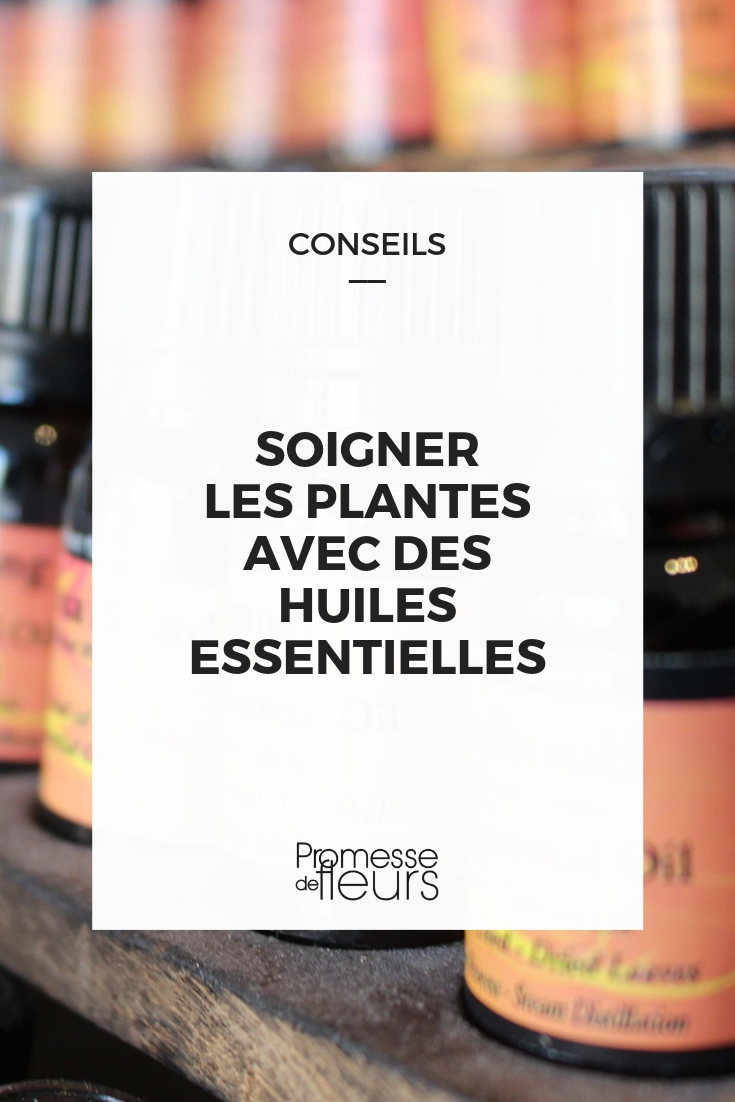































Comments